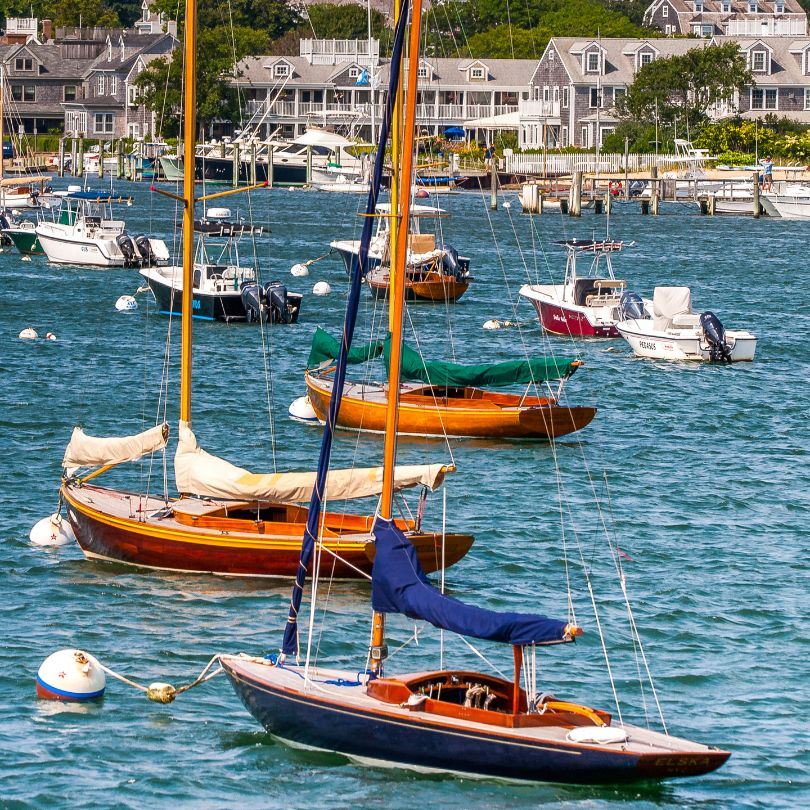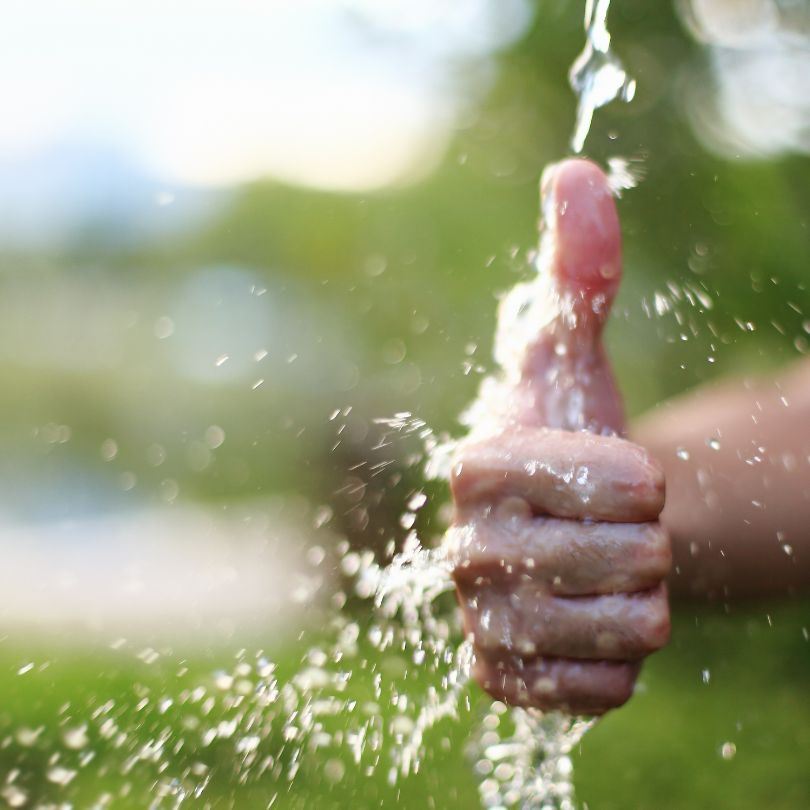By Ed Orenstein
Monomoy is deeply entwined with the Nantucket Harbor and surrounding environment. As a community, how we choose to manage our homes has a significant impact on the health and longevity of that environment. This is important not only for the inherent beauty that drew us to Nantucket in the first place, but also for the recreations we enjoy, such as fishing, boating, beach-going, and more.

Beyond that are the less visible ecosystem benefits, such as erosion mitigation, storm protection, and carbon sequestration. Conscious participation in the management of our properties can preserve this space for generations to come, while, over time, reducing the maintenance and costs associated with homeownership.
Two bodies of water carry importance for this goal: the freshwater aquifer on which the town relies for drinking water, and the ocean in which the island resides. As the island becomes more populated, the strain on both these bodies of water grows. It is vital that we maintain high levels in the aquifer by practicing smart water usage. It is equally important that we protect the ocean from pollutants in order to strengthen its resilience and health.
One of the leading contributors to poor water quality is fertilizer runoff. The more people that live near the coast, and the more fertilizer those households use, the greater the amount of fertilizer ends up in the ocean. This is particularly problematic in an enclosed body of water, such as the Harbor, because there is less water movement and the nutrients become highly concentrated. The most damaging nutrient in large quantities is nitrogen, which comes from both wastewater disposal and runoff. In addition to polluting the water, the excess nitrogen also causes harmful algal blooms - which are not only toxic to humans and dogs in some cases, but also alter the pH of the water, create dead zones that lack oxygen, and smother eelgrass, a species of seagrass that is foundational to the local habitat, supporting all native marine life.
The Nantucket bay scallop fishery, like many others, is dependent on this eelgrass and the healthy functioning of the ecosystem in which it resides. The town has been studying two primary indicators of ecosystem health for decades; the deterioration of the water quality and loss of eelgrass are well documented through a number of monitoring programs including extensive seasonal water quality sampling and mapping that show the extent of the eelgrass decline. This can be directly correlated with data on scallop volumes, which have been declining over the decades. The town has taken a number of steps in recent years to manage nutrients and address water quality in the Harbor, including adding more sewer hookups and restructuring the jetty, but we as individuals have a part to play as well.
 How we behave, as a community of homeowners on the edge of the watershed, has an outsized impact. Some amount of education is needed but much is common sense. We can, with small adjustments in our behavior, take meaningful action to impact the quality of the harbor and reduce pressure on the water supply, by paying attention to our water usage and landscaping practices. Interior adjustments like more efficient shower heads and lower water volume toilets have trade offs, but behavioral changes like not running the water while brushing your teeth requires little sacrifice and cumulatively it adds up. Our landscaping footprint is much larger, and the solutions are well documented (see resources below). While some of these solutions require initial investment in new technology and hardware, many will result in lowered maintenance and costs, as fertilizer and water usage is reduced and landscaping plans are implemented more strategically.
How we behave, as a community of homeowners on the edge of the watershed, has an outsized impact. Some amount of education is needed but much is common sense. We can, with small adjustments in our behavior, take meaningful action to impact the quality of the harbor and reduce pressure on the water supply, by paying attention to our water usage and landscaping practices. Interior adjustments like more efficient shower heads and lower water volume toilets have trade offs, but behavioral changes like not running the water while brushing your teeth requires little sacrifice and cumulatively it adds up. Our landscaping footprint is much larger, and the solutions are well documented (see resources below). While some of these solutions require initial investment in new technology and hardware, many will result in lowered maintenance and costs, as fertilizer and water usage is reduced and landscaping plans are implemented more strategically.
We can, over time, improve and adjust our distribution and consumption of water inside and outside of our homes. Below are actionable steps you can take on your property.
Conserve Water
 Update and upgrade your irrigation plan
Update and upgrade your irrigation plan- Water your lawn using less water, more frequently
- Install rain detection equipment on automatic sprinkler systems
- Introduce less water-intensive native landscaping
- Retrofit your home with low flow toilets, shower heads and faucet aerators
- Reduce costs by adding a deduct meter, which will remove the sewer charge for irrigation water
- Action: talk to your irrigation provider about the quantity and timing of irrigation
- Action: install new sprinkler heads and modern watering clocks
Reduce Fertilizer & Chemicals
- Use Polyon coated fertilizer, which controls the release of nutrients over time
- Combine your irrigation and fertilizer application - the Polyon fertilizer melts and glues when wet, preventing it from washing away in the form of runoff
- Use conservative amounts of insecticides, fungicides, and pesticides, and consider natural alternatives like nematodes
- Consider allowing clover to grow, which fixes nitrogen thereby increasing the amount available to plants and reducing the amount of fertilizer required, and can be an aesthetically pleasing addition to your lawn
- Action: talk to your landscaper about the type, quantity and timing of fertilizer applications
- Action: hire a licensed expert to apply fertilizer and chemicals, and ask them to spot spray instead of using broadcast treatments
Minimize Landscaping Footprint
- Increase native vegetation that does not require irrigation or fertilization
- Decrease lawn sizes and non-permeable surfaces
- Action: plant warm weather grasses and perennials on the edges of your lawn or sloping hills
- Action: use fescue grass or other varieties that require fewer inputs
Resources
Town of Nantucket:
Nantucket Land Council:
Massachusetts State Gov:
On the Coast